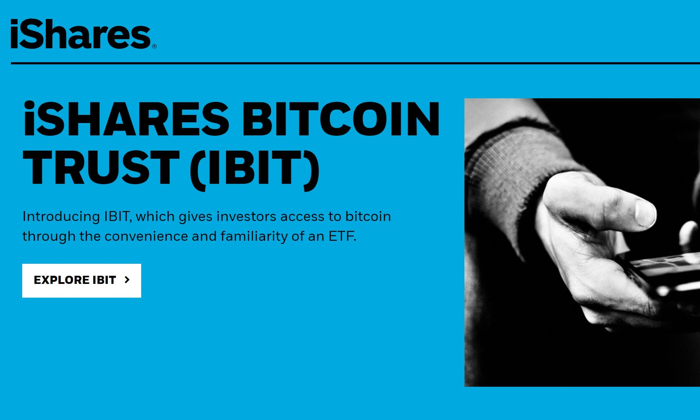Blockchain privacy is an essential aspect of maintaining individual autonomy in the digital finance landscape. As crypto transactions become more ubiquitous, it is vital to recognize that financial privacy safeguards our rights rather than enabling criminal activities. In fact, studies show that over 99.6% of these transactions are legitimate, dismantling the misconception that blockchain technology serves mainly as a facilitator for illicit behavior. Upholding privacy rights in blockchain is crucial for fostering trust, enabling secure collaborations, and protecting sensitive information across various sectors. As we explore the intersection of technology and financial privacy, understanding the role of blockchain privacy becomes increasingly important.
The notion of privacy in distributed ledgers extends beyond mere secrecy; it encompasses the protection of personal data and the preservation of individual freedoms in the realm of decentralized finance. As we delve into this intricate subject, it is crucial to differentiate between the common misconceptions surrounding cryptographic anonymity versus its legitimate applications in facilitating confidential transactions. With the rise of digital currencies and secure communications, the need for safeguarding one’s financial activities has never been more apparent. This topic invites a broader conversation about how privacy is not just a privilege for a few but rather a fundamental right afforded to everyone in the age of information. Understanding these dynamics will illuminate the need for robust privacy measures across blockchain networks, ultimately enhancing the security and integrity of financial systems.
The Importance of Blockchain Privacy in Digital Finance
Blockchain privacy is essential in the ever-evolving world of digital finance. As financial transactions are increasingly being conducted online, the need for robust privacy measures cannot be overstated. Privacy in blockchain technology allows individuals to have control over their financial information, safeguarding it from potential theft or misuse. This control is particularly crucial as the landscape of financial transactions shifts towards greater digitization, making users vulnerable to data leaks and unwanted surveillance.
Moreover, the legitimacy of crypto transactions has been backed by evidence showing that a staggering 99.6% are lawful. This statistic counters claims that blockchain privacy fosters criminal behavior. Instead of viewing privacy features as suspicious, they should be seen as necessary protections that enhance security and trust in digital currencies. By ensuring privacy in blockchain, we facilitate a system where individuals can engage in financial activities without the fear of persecution or exploitation.
Combatting Misconceptions: Privacy vs. Criminality
A prevalent misconception about blockchain technology is its association with illicit activities. This ‘guilt by association’ fallacy has perpetuated fears surrounding privacy features in cryptocurrencies. When the majority of crypto transactions are legitimate, it’s crucial to distinguish between the potential for misuse and the reality of usage. Just as traditional currency can be abused, so can digital assets; however, this should not be a justification for regulating privacy out of existence. Instead, we need comprehensive strategies that distinguish legitimate users from potential wrongdoers.
It’s essential to highlight the varied purposes of blockchain privacy. Financial privacy not only protects individual identity but is fundamental for legitimate business operations and personal freedoms. Salary negotiations, personal health transactions, and donations to causes all require a degree of confidentiality that blockchain can uphold. By focusing on the constructive uses of blockchain privacy, we can foster a more accurate dialogue that appreciates the role of privacy in maintaining societal norms and ensuring freedom for all users.
Frequently Asked Questions
What is blockchain privacy and why is it essential for crypto transactions?
Blockchain privacy refers to the ability to keep transaction details confidential while using blockchain technology. It is essential for crypto transactions as it safeguards users’ financial privacy, protects sensitive data, and ensures that individuals maintain control over their personal information in an increasingly data-driven world.
How do financial privacy rights relate to blockchain technology?
Financial privacy rights are fundamental protections that ensure individuals can conduct transactions without undue surveillance. Blockchain technology, with its inherent capacity for privacy through features like shielded transactions, upholds these rights by decentralizing power and allowing users to control the visibility of their financial activity.
Are crypto transactions associated with criminal activity due to blockchain privacy features?
The narrative that blockchain privacy features facilitate criminality is misleading. Reports show that over 99.6% of crypto transactions are legitimate, highlighting that blockchain privacy is not a tool for crime but rather a safeguard for financial autonomy and dignity.
What role does digital finance play in ensuring privacy rights on the blockchain?
Digital finance utilizes blockchain technology to enhance privacy rights by providing mechanisms that enable secure, anonymous transactions. This allows individuals to engage in financial activities without fear of exposure or control, reinforcing their autonomy and personal freedom.
Can blockchain privacy coexist with regulatory requirements like KYC?
Yes, blockchain privacy can coexist with regulatory requirements such as Know Your Customer (KYC). Solutions like Shielder enable users to maintain transaction confidentiality while still allowing them to comply with necessary regulations by revealing their identities only when required.
Why is it important to protect privacy in financial transactions on blockchain?
Protecting privacy in financial transactions on blockchain is crucial as it shields sensitive information from surveillance, maintains individual autonomy, and fosters trust. It allows individuals to conduct transactions like salary negotiations or donations without fear of disclosure, empowering them in their financial dealings.
How does blockchain technology enhance privacy compared to traditional banking?
Blockchain technology enhances privacy compared to traditional banking by offering features like pseudonymous transactions and shielded tokens. Unlike traditional banking, where account details and transaction histories are accessible to others, blockchain enables users to maintain the confidentiality of their financial activities.
What are the philosophical foundations behind blockchain privacy as a right?
The philosophical foundation of blockchain privacy as a right stems from principles articulated in the Universal Declaration of Human Rights. It emphasizes that privacy is a fundamental human right necessary for individual freedom and dignity, a principle that applies equally to financial transactions conducted on the blockchain.
How can privacy-focused cryptocurrency challenge traditional power structures in finance?
Privacy-focused cryptocurrency can challenge traditional power structures by redistributing control and knowledge away from centralized entities like banks and governments. This decentralization fosters a more equitable financial system, aligning with democratic values by protecting individual freedoms and preventing potential abuses of power.
What are the implications of diminishing privacy rights in digital finance?
Diminishing privacy rights in digital finance can lead to widespread surveillance and control over individual financial activities. This erosion of privacy undermines personal autonomy, restricts financial freedom, and potentially places vulnerable populations at greater risk from oppressive regimes.
| Key Point | Details |
|---|---|
| Blockchain Privacy is a Right | Privacy is essential for individual autonomy, not linked to criminality. |
| Legitimacy of Crypto Transactions | Over 99.6% of transactions are legitimate, dispelling myths of misuse. |
| Misunderstanding of Privacy | Privacy is not about hiding but controlling personal information. |
| Privacy Use Cases | Includes salary negotiations, medical payments, political donations, and business confidentiality. |
| Historical Context | Cash has historically provided privacy; crypto extends this into digital finance. |
| Decentralization Benefits | Distributes power, offering balanced control and protecting individual freedoms. |
Summary
Blockchain privacy is a fundamental right essential for individual autonomy and dignity. It counteracts the misconception that privacy features are tools for criminal activity, highlighting that legitimate uses of privacy extend into various aspects of personal and business life. By ensuring control over personal information and protecting against unnecessary surveillance, blockchain privacy fortifies individual freedoms in the digital age.
Blockchain privacy is an essential aspect of modern digital finance, serving as a safeguard for financial privacy rights in a world increasingly reliant on crypto transactions. Contrary to popular belief, the majority of these transactions are legitimate, with statistics showing that over 99.6% of crypto activities are not associated with illicit actions. In today’s rapidly evolving landscape of blockchain technology, the need for personal data protection has never been more critical. As society grapples with rampant data surveillance, establishing robust privacy measures within blockchain becomes paramount. This not only preserves individual autonomy but also ensures that essential financial rights are upheld against unwarranted scrutiny.
The concept of privacy within distributed ledger systems, often referred to as blockchain technology, is of tremendous importance in the realm of cryptocurrency and its related activities. As we delve into the intricacies of private transactions and how they intertwine with user anonymity, it becomes clear that the right to maintain confidentiality is vital for individuals engaging in financial exchanges. The ongoing discourse surrounding the term ‘digital finance’ reflects a growing awareness of how personal information can be shielded while participating in the broader economy. By embracing alternatives that prioritize user privacy, we can work towards a more equitable system that respects privacy rights while fostering innovation in financial transactions. Ultimately, understanding these dynamics helps clarify that blockchain privacy is not merely an optional feature, but a fundamental necessity for a secure financial future.
















Leave a Reply